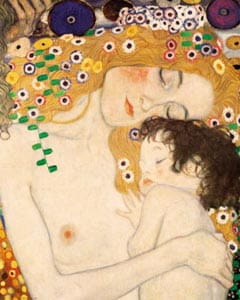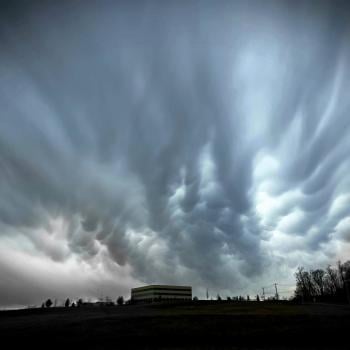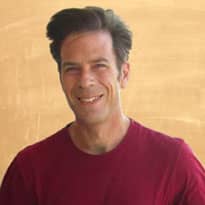 My mother is the best Catholic I've ever known. That might sound a little strange when you consider she hasn't been to Mass since the fall of 1962, but there it is.
My mother is the best Catholic I've ever known. That might sound a little strange when you consider she hasn't been to Mass since the fall of 1962, but there it is.
While raising me, by herself, in Manhattan of all places, she was stewardship personified. When we moved to the City in 1979, she was working as some kind of sub-sub-sub-editor for the company that published The World Almanac and Book of Facts. I don't know what her salary was, but it was low. I don't know what our rent was, but it was high. With an instinct that would have impressed a Franciscan, she pinched her few pennies with panache. Dressing in jeans and boys' blazers, she managed to look stylish in a BoHo sort of way—"Annie Hall chic," she liked to call it. She sniffed out every free amusement in town; when Simon and Garfunkel played at the Great Lawn, in Central Park, we were there—well in the back, but still there.
New York in the 1980s, pre-Giuliani, was not the asphalt Disneyland Adam Gopnik celebrates in The Children's Gate. No, for all its museums, its opera houses, Symphony Space and the 92nd Street Y, it could be a very scary and dangerous place. Threading a path through the creeps and the muggers, the winos and the pervs did get to her, but I picked this up only occasionally, from the smallest of cues. For my first Christmas in New York, she took me to Rockefeller Center, to watch the lighting of the big tree. To put it mildly, we had a lot of company that evening. Somehow, I got caught in the crush. For a moment, I had the breath squeezed right out of me. Suddenly I heard my mother shout, "There is a child in there!" Noting her rage-whitened face, the crowd parted just enough that I could breathe again.
Had she heard me whimper? Maybe. Or maybe Sarah Palin's right. Maybe moms just kinda know when something's wrong.
But normally, she was pure sang-froid. One afternoon when I was a teenager, she came home early from sunbathing in Carl Schurz Park. I asked her what happened. "Some man started masturbating," she answered with a shrug, as though such an event were no more cause for shock or alarm than the sudden obstruction of the sun by a cloud bank.
Toward the world, my mother adopted a truly Christian stance: she was in it, but not of it.
Where she really planted her flag was the world of letters. When I was 13, we got our first color television—with a 13-inch screen, as I recall. To our common satisfaction, it was banished to my room. Her own space, which was actually meant to be the living room, she filled with books—Dickens, Joyce, Edward Said, Allan Bloom. She speaks in perfect sentences. Once, on Cheers, I heard the following exchange:
Sam: I still think about you sometimes.
Diane: And I, you. (Pause.) What do you think about?
Sam: Mostly that you'll stop saying things like, "And I, you."
I remember thinking that Sam didn't know how good he had it—next to my mother, Diane talked like Moms Mabley.
My mother's cultivated airs did have their drawbacks. I came to associate literacy with girlishness. At the onset of puberty, I resolved to become a lowbrow. ("Bluto," my mother began calling me.) But years later, when I rediscovered literature as an act of rebellion against my journalism grad program, I adopted as my hero Aleksandr Sergeyevich Pushkin. It has since occurred to me that Pushkin is the male counterpart, the long-lost Russo-Abyssinian brother, of Jane Austen, my mother's favorite novelist. If Fitz D'Arcy and Zheniya Onegin had met, they'd have become fast friends. (Actually, they'd have blown each other's brains out in a duel—a sweet and fitting end for any Regency bromance.)
Stewardship, detachment and scholarship do not a Catholic make, of course. It was with her love of humility and disdain for pomp that my mother really proved you can take the girl out of the Church but not the reverse. Even after promotions at work and her success at writing young adult fiction had granted her some discretionary spending money, she scorned credit cards, chi-chi restaurants, Perrier and Tofutti—the whole grand monde of 1980s New York. When her son, young Andrew McCarthy, insisted on wearing Ralph Lauren, she gritted her teeth. Courted by stockbrokers, she fell in love with an engineer who rode a bicycle to work.
Though a natural introvert, she offers a listening ear to the lonely, especially the elderly. Her grandmother's dented diction made me laugh; my mother found poetry in it. "Them poinsetters what Bob give me was the reddest poinsetters of all," Gram once told my mother, referring to her boyfriend's Christmas offering. My mother repeated it throughout the train ride home, and might have slipped it into a book of quotations if she'd been allowed.





